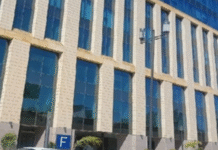By Saurabh Katkurwar
Jalandhar– Even as a new harvesting season has begun, Punjab’s farmers are staring at bleak prospects with potato prices, that had hit rock-bottom last year, not showing signs of returning to previous levels.
About 10 per cent of the current season’s total harvest has been sold and the prices have stuck somewhere between Rs 150 and Rs 300 per quintal, according to the Punjab Horticulture Department. Farmers are apprehensive about the remuneration this year too, though the production is expected to be higher owing to favourable climatic conditions. About 80 per cent of the harvest in Punjab comes during the peak season of February and March.
Potato prices had slumped to just Rs 10 for a bag of 100 kg (one quintal) last year, leaving farmers in tears — and most of them chose to throw their produce on the roads to rot.
According to the Punjab government, production this year is expected to be over 2.5 million tonnes.
“If the weather is congenial and potato plants are not infected by the blight, overall yield will be good. Currently the rates are not good, I heard,” Gulab Singh Gill, Deputy Director (Horticulture) told IANS.
What concerns the farmers more is uncertainty over remunerative prices for their harvest when it hits the market during the peak season, said Gurinder Singh Kang, a potato grower from Jalandhar’s Lallian Kalan village.
“There is neither much fog nor initiation of blight disease. The climate is quite favorable for optimum output. However, there is an apprehension among farmers and traders whether they will get a fair price as current rates are at below Rs 3 for a kg,” Kang said.
Despite the fall in prices last year, land under potato cultivation has increased this year as farmers used a certain amount of the unsold crop for sowing.
“It is not just the decline in consumption or rise in production that led to the price drop, but several policy-related reasons such as demonetisation, high tax rate for cold storage, lack of export facilities are also responsible,” an official of the Jalandhar Potato Growers Association (JPCA) said.
“It is like multi-organ failure. After demonetisation, traders have become hesitant to procure any agricultural produce in excess. Earlier, we had to pay 14 per cent tax for cold storage but post-GST it has become 28 per cent,” said JPGA Secretary Jagat Gill Thamanwal.
“Also, there are no facilities for exports. Punjab is land-locked and exports to Pakistan are banned via the Wagah border. As the sea route is not cost-effective, our superior potato crop fails in the competition,” Thamanwal added.
Thus, farmers had thrown about 80 per cent of their crop on the roads due to the drastic fall in prices last year.
It is not just the potato growers who have been hurt but the vibrant seed industry has also been significantly impacted, claimed JPCA President Gururaj Nijjar.
“We fulfill almost 33 per cent of the country’s demand and we provide good quality seeds to other states. However, the seeds we produced were not sold this year. We could not even store them in cold storage as the seed’s life is just two months,” Nijjar said.
Potato seeds grown in the Doaba region — the land between the Sutlej and Ravi rivers — are in huge demand across the country for being disease-free and of superior quality.
Nijjar produced 15,000 bags (each 50 kg) of potato seeds in 2016-17 and Gill produced 35,000 bags.
Farmers in the region have sought government assistance, including a minimum support price (MSP), to bring them out of the financial distress.
Including potatoes in the MSP scheme is, however, not possible as it is a cash crop and prices will be decided by the markets, asserted a senior government official, who requested anonymity. (IANS)







